The proverbial pat on the shoulder can sometimes be a heavy weight on the path to expressing our true identity and individual potential. Especially when we are trying to put on more of these accolade-weights every day so that we can proudly tick them off our life training plan.
At best, you’ve done everything right again. Your boss is more than happy with your work, your parents are proud of your career and your partner is cooing with satisfaction. So what? Don’t we all want to hear kind words of praise for what we do? A nice extra reward at the end of a long, busy day? Confirmation that we are on the right track?
Not if the praise, the reward and the symbolic documentation of your brilliant achievements become your goal.
Craving for recognition, applause and importance in the outside world can paralyse us, prevent us from expressing who we really are and lock up the motivation and creativity that comes from within. Dazed by flattery we hardly notice that, because it feels good to be validated in what we do.
Personally, I find the following question interesting: who does really benefit from our activities in this case? Quite often, hidden behind the extra reward and well-meant compliment, there is a statement that may not have been considered: you have done something that YOU did not really want to do, or maybe not the way you wanted to do it, but something the other person wanted to be done, their way. There might be something in it for them, even if it’s just the fact that they glorify themselves with your accomplishments.
Perhaps you think in more modest terms. You don’t care whether people praise you or agree with you, because you don’t need either. You may try to avoid disagreements and be afraid of opposition, which we usually confuse with trouble and stressful conflict. In this case we are not looking for praise, but for the absence of punishment. We want to be left in peace. This is the other side of the coin in the perceived Olympic Games of life.
Praise and rewards have always worked to get us to do things in the interests of other people. Most of us have been disciplined in this way by the conditions at school, home and work, but we often pay a high price for this – our individuality.
We have become accustomed to the fact that the energy for our activities comes from outside. We have learned to confuse praise and encouragement or the absence of punishment with the meaningfulness of what we are actually doing. We are sold an idea of happiness, but in reality it is the idea of happiness of others. In essence, we would like to have the value of our person confirmed by others by offering them value in what we do. Behind this is our desire to be seen, to belong. It’s about attention, affection, spending time together, being part of life. All deeply human desires.
At work, we then stick to the guidelines from above and our new ideas, which deviate from the previous way of working, secretly disappear in a drawer. We lose sight of our own creative process more and more, because the end goal is being appreciated and no longer the joy of what we do, the joy of life or our vision of setting something new in motion through our work. We do not express our value as a human being, which comes from the depth of our soul, but we look for it externally and try to get it through our achievements, by doing what we believe we should to do.
Accustomed for years to being vicarious agents for the real or perceived demands of others, the source of our own inner drive has dried up. The former external stimuli have ensured that our creative work, the actual process of it, has been devalued and even perceived as a nuisance on the way to the winner’s podium. We got tired. And we kept going. We got angry. And we kept going. At some point, we may have stopped doing anything at all.
Maybe you know this? You’re super efficient at fulfilling other people’s aspirations and going the extra mile for them. Left on your own devices, you might have lots of great plans and projects on your head, but when it comes to implementing them, you lose all sense of work structure, you are disorganised, and you don’t get anything done properly. You get started, you get bogged down, you hardly finish anything. What we do and the joy of doing it have been ruined. When the external enticement is gone, we’re left feeling unmotivated and lethargic.
Ultimately, what matters is the degree to which we crave and depend on constant recognition and what really motivates us. Without all this we need our own drive, energy from within that we need to muster, ideally out of enjoyment of the task, out of a conviction that what we are doing is important, that it will help other people, make our own and their lives easier and fill it with more joy or beauty.
However, that brings us back to the point of what we do serving others. Didn’t we already talk about that? Yes, we did. But that was about fulfilling other people’s expectations. This is about the expectations you have of yourself, your contribution to bringing something new into the world, even if it is not asked for or even wanted at first. Because you are very good at what you are doing, you feel it is right and important, because it would enrich the lives of many people. And does this mean you can no longer be happy about encouragement?
Certainly not. Sincere gratitude, identification with what you are doing, liking it, the resonance you create in others, the inspiration you cause, the desire to work together with you are all things to be naturally happy about, because they all create a connection with other people who are participating in your process and you in theirs. It’s about the source of our drive to create and whether we want to please someone in order to be accepted and loved – at all costs.
The more we do something just to belong to others, the less we belong to ourselves. The less we can identify with what we are doing. It is as if we’re driving on emptiness, not knowing where we are going, but desperate to get there anyway.
Do you love what you do? How would YOU know?
© Peggy Vogt 2024
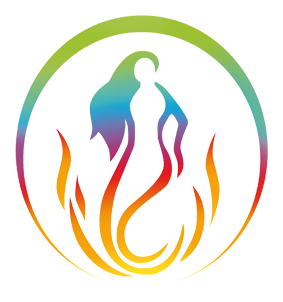
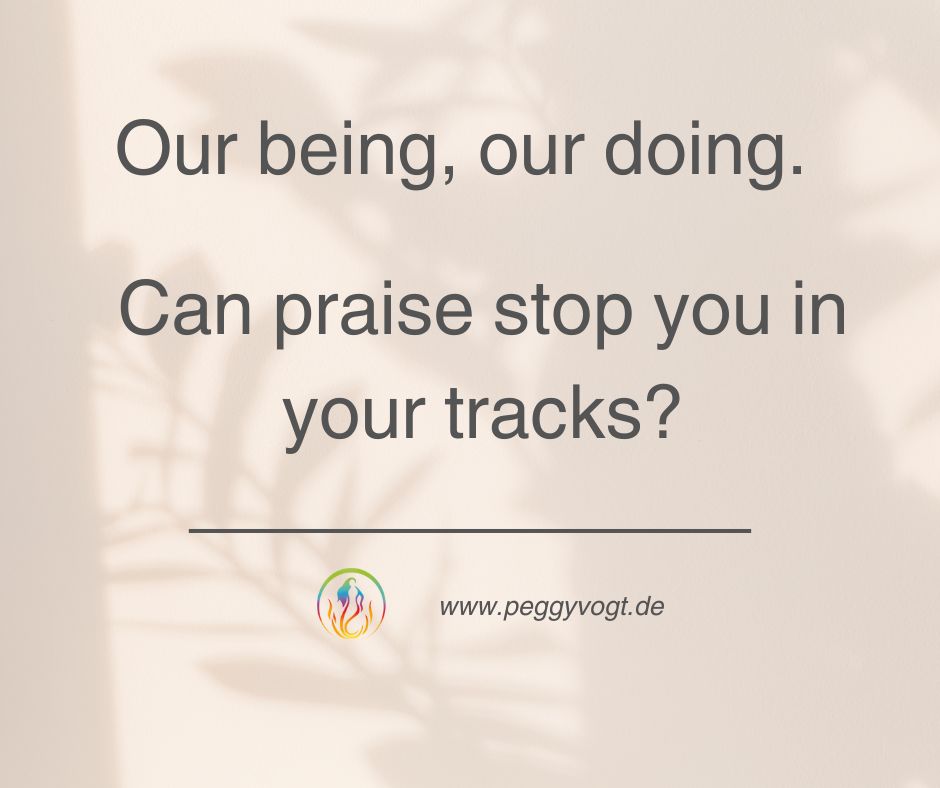

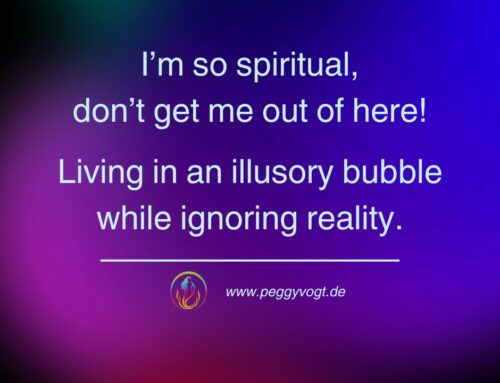
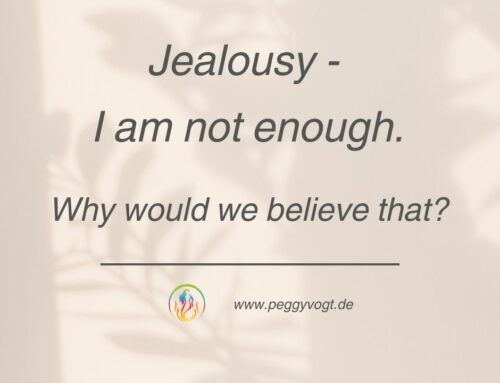
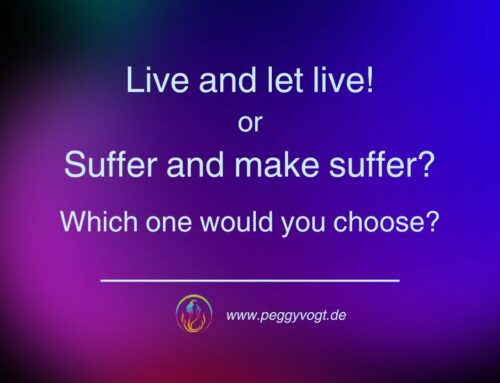
Leave A Comment